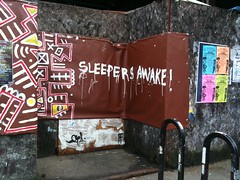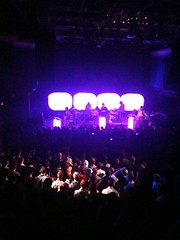 I was surprised by Randy Cohen's Ethicist column in the recent Sunday New York Times Magazine about the ethics of media piracy. Since the woman who wrote in had bought a hardcover copy of the new Stephen King novel and the publisher had decided to withhold the e-book version (to increase hardcover sales), the columnist decided her piracy of the e-book was illegal but ethical.
I was surprised by Randy Cohen's Ethicist column in the recent Sunday New York Times Magazine about the ethics of media piracy. Since the woman who wrote in had bought a hardcover copy of the new Stephen King novel and the publisher had decided to withhold the e-book version (to increase hardcover sales), the columnist decided her piracy of the e-book was illegal but ethical.The dilemma this woman faced isn't unique though it's typically couched in terms of fairness or usability. However reframing the debate about digital media format-shifting as ethics vs. legality gets to the crux of the issue for me.
Today I was making a mix CD and a few of the songs were iTunes files. There are easy ways of breaking digital rights management protection on iTunes files, but the ones I tried weren't working. I had bought the songs - so the artists were paid - and I wanted to share them but couldn't because of the DRM. Which it's illegal for me to break. Now, if I'd ripped my own CDs, then turning these songs into mp3s would be easy and questionably-legal-but-ignorable. In short, there's no way to legally share those songs. For those that try to answer this need, well, the experience of muxtape is a cautionary tale.
Once you start thinking about all the ways people use music, it's not hard to think of other cases where what seems like a perfectly reasonable consumer desire is illegal. What about DJs who buy vinyl and then pirate mp3s? Some manufacturers bundle mp3s with vinyl to cater to that audience, but the rest are violating copyright law. Even President Obama most likely violated copyright law to give an ipod with some showtunes to the Queen of England.
Predictably, Randy Cohen's remarks inspired blog posts with lots of comments wherein each person placed the line between legality and ethics in a slightly different spot. They're an interesting bunch of comments though precisely because so many of them recognize that there is a difference between legality and ethics.
What most people want to do with their music is pretty simple: listen to it, share it with their friends (not the world), and listen to it again in another place/on another gadget. Readers will want essentially the same thing. It's odd to me that any industry would proactively choose to make their consumers become pirates to get a product that they're selling.
To be continued as the film and book world wade into the bog...




